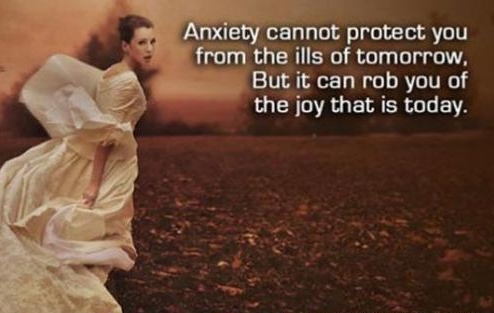Anxiety
How anxiety serves us?
Anxiety serves to tell you that there is something dangerous in your environment that may be a threat to you, and the emotion mobilises you either to stay and fight or to run for your life. When your brain senses danger, your sympathetic nervous system gets triggered. This is the system in the body that is responsible for your fear response and is essentially the way your body prepares to defend itself.
The activation of this system leads to the production of adrenaline, which causes an increase in your heart rate and the strength of your heartbeat. This speeds up the rate at which blood flows and directs the blood to places it is needed the most in order to help you fight or flight (for example, to the large muscles in your legs and arms so you can move more quickly).
I am sure that many of you will have heard of the fight or flight response but there is another part to this that is not often referred to, and that this is to freeze in the situation that causes extreme physical danger leaving you unable to move.
In the days when cavemen lived, anxiety would have served to keep the hunters alive as they hunted their food, as the adrenaline and cortisol ran through their bodies they also reached a state known as hyper-vigilance. This is where the cavemen would be able to perceive or maybe even feel the danger near to them.
Now that we no longer have to hunt for food, anxiety remains to serve us and to keep us safe but not in the same way as the cavemen days. We are no longer likely to be hunted by other animals, so we now use it when we walk home in the dark, or are face to face with someone whom we feel uncertain about.

Types of anxiety
Anxiety (mild –moderate) – most people suffer with anxiety at some point it their lives;
General Anxiety Disorder (GAD) – this is when anything and everything triggers anxiety or panic attacks;
Social anxiety – is the fear of being around others not knowing what to say or how to be, if it’s the right thing;
Panic attacks – these are more physically disabling as they are less of a felt sense and more physical symptoms;
Panic disorder – this is when you have recurring and persistent panic attacks with warning;
Obsessive Compulsive Disorder (OCD) – the compulsive need to repeat an act three or more times;
Phobias – the irrational fear of something.
So what are the symptoms of an anxiety attacks or panic attacks (click on the heading to reveal the symptoms)?
Common symptoms of anxiety include:-
- dizziness
- drowsiness and tiredness
- pins and needles
- irregular heartbeat (palpitations)
- muscle aches and tension
- dry mouth
- excessive sweating
- shortness of breath
- stomach ache
- nausea
- diarrhoea
- headache
- excessive thirst
- frequent urinating
- painful or missed periods
- difficulty falling or staying asleep (insomnia)
Common symptoms of panic attacks include:-
- a sensation that your heart is beating irregularly (palpitations)
- sweating
- trembling
- shortness of breath
- a choking sensation
- chest pain
- feeling sick
-
The intrusive thoughts that many people have described alongside the physical sensations described.
- Thinking that you may lose control and/or go “mad”
- Thinking that you might die
- Thinking that you may have a heart attack/be sick/faint/have a brain tumour
- Feeling that people are looking at you and observing your anxiety
- Feeling as though things are speeding up/slowing down
- Feeling detached from your environment and the people in it
- Feeling like wanting to run away/escape from the situation
- Feeling on edge and alert to everything around you
So why does our anxiety become too much for us?
There are two theories; one is that it’s a loss of control over our lives and we feel unsafe in our environment so we perceive a threat that someone is going to hurt us or we will become under attack from others;
The other is that we didn’t feel safe enough in our childhood and our parents dismissed our fears instead of taking the time to reassure us that we are safe and well, anxiety often goes in hand with the belief that we are seriously ill, because it is not derived from a rational thought, there will be no-one out to hurt us with the kind of intentions that our anxiety would have us believe, we will suffer with hyper vigilance which means that we will notice the tiny details.
As an anxiety sufferer it is an exhausting process to sit in watching and waiting with your body always ready to react to what hits the floor. Our bodies will produce massive amounts of cortisol and adrenaline to keep us in a state of constant vigil. Imagine how it might feel just to put it down, even if it’s just for a minute.
